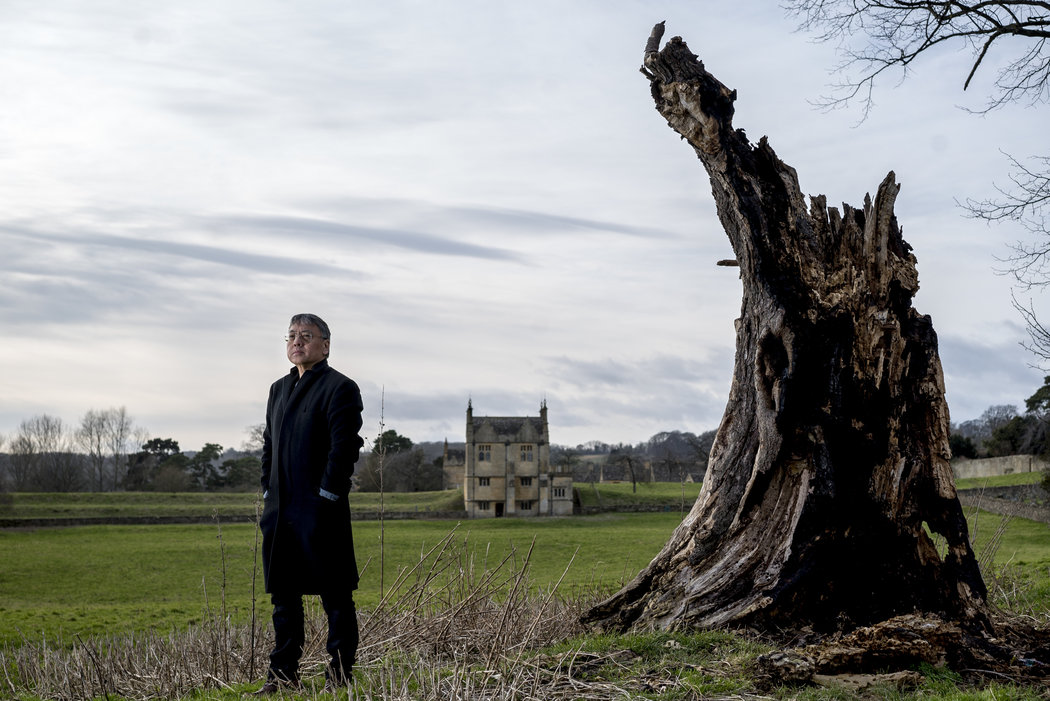Thursday
My book discussion group is reading Kazuo Ishiguro’s The Buried Giant (2015) this month. While some see the novel as a meditation on repressed trauma—and they’re not wrong—for me that novel works as a fairy tale parable about the tensions that led to Brexit. Or if that’s too specific, the novel captures that shakiness of the European Union and modern liberalism generally, which is being threatened by far right parties. For that reason it captures the American experience as well.
The novel is set in early medieval Britain when the Britons and the Saxons are maintaining an uneasy truce. King Arthur, a Briton, has departed, but Sir Gawain is still alive, and his job (spoiler alert) is to protect a dragon whose breath spreads forgetfulness throughout the land. As it turns out, the dragon is Merlin’s project. Britain has experienced much savagery during the Briton-Saxon wars, including the slaughter of civilians, and Arthur believes that peace can be restored only if everyone forgets the past. Gawain explains how the forgetfulness was engineered:
Even before that [Briton-Saxon] battle was properly won, I rode out with four good comrades to tame this same creature, in those days both mighty and angry, so Merlin could place this great spell on her breath. A dark man he may have been, but in this he did God’s will, not only Arthur’s. Without this she-dragon’s breath, would peace ever have come? Look how we live now, sir! Old foes as cousins, village by village.
Doesn’t this sound like the European peace that has reigned since the end of World War II and that was solidified with the EU? Now, however, ancient grievances are being revisited, the UK has withdrawn, and rightwing nationalists are on the rise in France, Poland, Germany, and elsewhere.
In the novel, it so happens that peace is on its last legs, even with Merlin’s machinations. The dragon has lost his original vigor and proves easy to kill. A Briton who witnesses the slaying hopes for the best but is brought back to earth by the Saxon warrior who delivers the blow:
“[W]ho knows what old hatred will loosen across the land now? We must hope God yet finds a way to preserve the bonds between our peoples, yet custom and suspicion have always divided us. Who knows what old hatreds will loosen across the land now? We must hope God yet finds a way to preserve the bonds between our peoples, yet custom and suspicion have always divided us. Who knows what will come when quick-tongued men make ancient grievances rhyme with fresh desire for land and conquest?”
“How right to fear it, sir,” Wistan said. “The giant, once well buried, now stirs. When soon he rises, as surely he will, the friendly bonds between us will prove as knots young girls make with the stems of small flowers. Men will burn their neighbors’ houses by night. Hang children from trees at dawn. The rivers will stink with corpses bloated from their days of voyaging. And even as they move on, our armies will grow larger, swollen by anger and thirst for vengeance. For you Britons, it’ll be as a ball of fire rolls towards you. You’ll flee or perish. And country by country, this will become a new land, a Saxon land, with no more trace of your people’s time.
While Wistan himself can’t entirely commit himself to this new cause—he has lived too long with Britons to be totally committed to vengeance—he has trained a young warrior who will be fanatical in the Saxon cause. The future does not look good.
Like many readers, I first became aware of the Anglo-Japanese Ishiguro from his Remains of the Day (1989), which describes creeping fascism in an upper class British household in the 1930s. The butler refuses to question his master and averts his eyes when a Jewish servant is sent back to Germany, probably to die. Here he may be writing about fascism again. In contemporary Europe and the United States, quick-tongued men make ancient grievance and the giant of tribal hatreds, once well buried, stirs.


